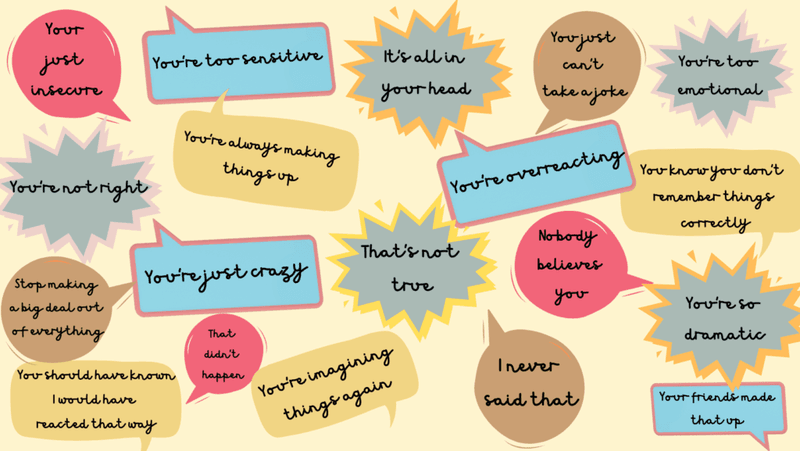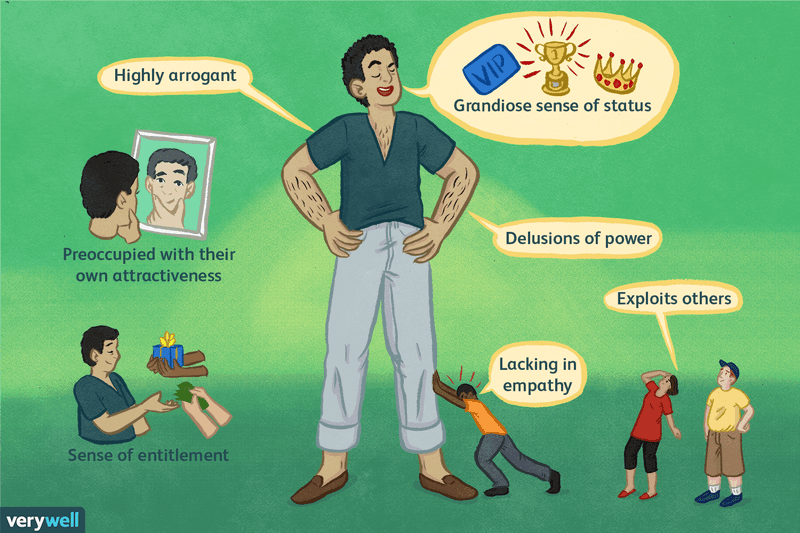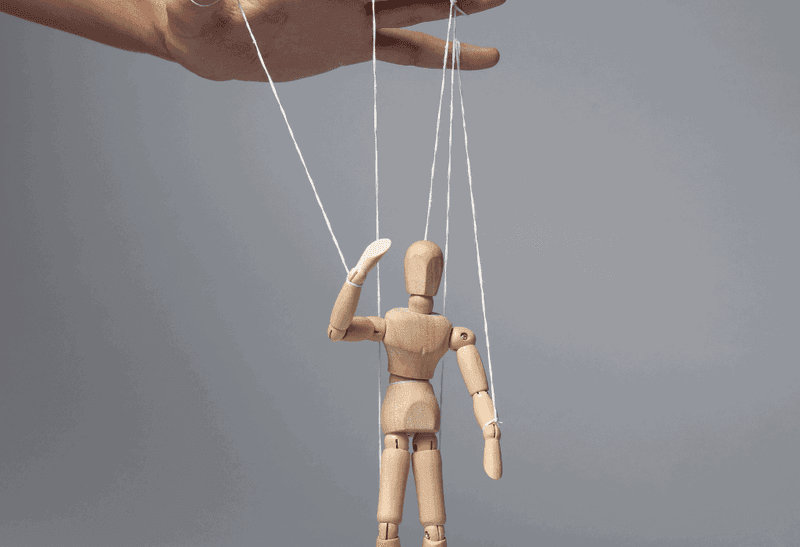18 Subtle Signs You’re Married to a Narcissist (That Most People Miss)
Narcissism isn’t always loud, obvious, or easy to spot—especially when it’s hiding behind charm, confidence, or what seems like love. In many marriages, the signs of narcissistic behavior can be subtle, sneaky, and deeply confusing.
You may find yourself constantly questioning your own feelings, walking on eggshells, or feeling like the “bad guy” even when you’ve done nothing wrong. If something in your relationship feels off but you can’t quite put your finger on it, you’re not alone.
Narcissistic partners often use emotional manipulation, gaslighting, and control tactics that are hard to detect—until you start to connect the dots.
Here are 18 subtle signs that you may be married to a narcissist. These aren’t the red flags that scream; they’re the quiet ones that whisper until they take a toll on your mental and emotional health. Spotting them could be the first step toward clarity—and healing.
1. They “listen,” but never really hear you.

Ever feel like you’re talking to yourself? You share your thoughts, but somehow, the conversation always circles back to them. It’s like you’re a supporting actor in their never-ending play. They nod and smile, appearing attentive, but when it’s your turn to share, the interest fades. You’re left feeling invisible, like you’ve just spoken to a mirror.
It’s not just frustrating; it’s isolating. You start questioning your own value in the conversation. It’s like they have cotton in their ears, only filtering the words that elevate their narrative.
Remember, it’s not about lack of hearing; it’s about lack of caring. Feeling unheard is not a reflection of your worth but rather their inability to see beyond themselves. You deserve to be heard and valued in every conversation, not just when it suits them.
2. They rewrite the past to make themselves look better.

Have you ever found yourself questioning your own memory? You remember events clearly, but they seem to have a different version—a version where they’re always the hero or the victim. From retelling stories to denying past promises, they’re like a living, breathing revisionist historian.
It’s baffling and disorienting. You’re sure you remember correctly, but their confidence shatters your certainty. It’s like being gaslit in real-time, and suddenly, you’re doubting your own experiences.
The constant rewriting isn’t just about ego; it’s about control. They curate reality to fit their narrative, leaving you in a maze of self-doubt. Trust your instincts. Your memories are valid, and rewriting history doesn’t change the truth. You deserve a partner who honors the shared past, not one who edits it.
3. They need constant admiration—and get cold when they don’t get it.

There’s a saying, “Admiration is the oxygen for a narcissist.” They bask in praise, thriving on compliments like a plant on sunlight. But the moment the admiration stops, the chill sets in. Conversations become distant, filled with frosty silence or cutting remarks.
You’re expected to be their cheerleader, applauding every little victory. But when you need encouragement or emotional support, suddenly there’s a vacuum. It’s a one-way street of validation, and when the flow stops, the temperature drops.
It’s exhausting, constantly feeding their ego while your emotional tank runs dry. Remember, love is about mutual support and encouragement, not just one-sided admiration. You deserve a partner who lifts you up, not one who only stands tall when praised.
4. They can charm anyone—except the person they live with.

To the outside world, they’re the life of the party—charming, engaging, and effortlessly likable. Everyone is drawn to their magnetic personality. But behind closed doors, it’s a different story. The charm switches off like a light, leaving you in the shadows of their dismissiveness or criticism.
It’s like living with Jekyll and Hyde. You see the moody, critical side that the world never witnesses, and it’s isolating. You start questioning, “Is it me? Am I the one causing this change?” But it’s not you; it’s the façade they maintain for everyone else.
The contrast is dizzying, leaving you feeling unworthy and confused. Remember, a partner should be consistent, loving both in public and private. You deserve the same warmth they show to the world.
5. They make you feel “too sensitive” every time you speak up.

You muster the courage to speak up, to share how you feel, only to be met with dismissive remarks. “You’re too sensitive” or “You’re overreacting” becomes the common refrain. Instead of addressing your concerns, they invalidate them, turning the focus back on your perceived flaws.
It’s a clever deflection, making you second-guess your emotions and burying valid feelings under a pile of self-doubt. You start to silence yourself, afraid of being labeled as overly emotional or dramatic.
But here’s the truth: Your feelings are valid, and expressing them isn’t a flaw. It’s a strength. You deserve a partner who listens and values your perspective, not one who diminishes it. Stand firm in your emotions; they are an integral part of who you are.
6. You constantly second-guess yourself.

Ever feel like you’re walking on a tightrope? Every decision, big or small, is met with scrutiny. They sow seeds of doubt, making you question everything from your memory to your instincts. It’s confusing and exhausting, leaving you in a constant state of self-doubt.
You’re not sure if you’re overreacting or if your memory is playing tricks. But it’s not your mind that’s at fault; it’s their manipulation. They thrive on your uncertainty, using it to control the narrative.
But remember, second-guessing shouldn’t be your default mode. Trust your instincts and intuition. You deserve a relationship where you feel confident and secure in your decisions, not one that leaves you questioning your every move.
7. They escalate minor issues to make you feel small.

A forgotten errand or a minor mistake becomes a full-blown crisis. They magnify small issues, using them as an opportunity to belittle you. It’s not about the mistake; it’s about making you feel insignificant.
It’s a tactic to shift the power balance, keeping you on your toes and under their thumb. You find yourself walking on eggshells, trying to avoid another explosion over something trivial.
This isn’t healthy or loving. A supportive partner addresses issues without diminishing your worth. You deserve someone who lifts you up, not one who seizes every chance to make you feel small.
8. They don’t apologize—unless it’s strategic.

Apologies are rare, and when they do come, there’s usually an agenda behind them. “I’m sorry, but you…” becomes the standard apology script, shifting blame back onto you. It’s more a tool for manipulation than a genuine gesture of remorse.
These apologies often come with strings attached, used to gain something they want or to end a conversation on their terms. You’re left feeling that the apology is more about them than about healing or growth.
True apologies mean taking responsibility, without deflecting or expecting something in return. You deserve genuine remorse and accountability, not strategic apologies that leave you feeling manipulated.
9. They use withdrawal or silence as punishment.

When upset, they retreat into silence, leaving you in emotional limbo. It’s not just a momentary pause; it’s a calculated withdrawal designed to make you squirm. This silence isn’t peaceful; it’s punitive, a way to keep you guessing and on edge.
You find yourself wondering what you did wrong, desperate to mend things, even when you’re not at fault. The silent treatment becomes a weapon, wielded to control and punish.
Remember, communication is key in any relationship. You deserve open dialogue, not emotional stonewalls. Silence should be a space for reflection, not a tool for manipulation. Stand firm; you’re worthy of being heard.
10. They treat you like an accessory to their image.

In their world, you’re an accessory—something to enhance their image rather than a partner to cherish. They parade you around when it suits their narrative, but your own needs and identity get sidelined.
It’s like you’re part of their personal brand, valued for what you bring to their image rather than who you are. You feel more like a prop than a person, an attachment to their public persona.
True partnership is about equality and mutual respect, not using someone as a status symbol. You deserve to be valued as your full, unique self, not just as an ornament to their ego.
11. They “forget” your boundaries—over and over again.

You express your boundaries clearly, yet they ignore, minimize, or mock them, repeatedly crossing lines you’ve drawn. It’s not forgetfulness; it’s a lack of respect. Each boundary breached chips away at your sense of safety and self-worth.
They act like your needs are an inconvenience, pushing limits to test your resolve. It’s a constant battle, leaving you feeling unheard and disrespected.
Boundaries are crucial for healthy relationships, not optional suggestions. You deserve a partner who honors and respects your limits, not one who tramples over them. Stand firm in your boundaries; they are your right, not a privilege.
12. They rarely show true vulnerability.

On the surface, they might share stories of past struggles, but true vulnerability? That’s a rarity. They deflect blame and avoid owning their flaws, always shifting responsibility elsewhere.
It’s like they’re wearing a mask, one that shields their true self from view. You’re left feeling like you’re only seeing the surface, never the depths. It’s hard to connect when they keep their guard up, never fully letting you in.
Vulnerability is the foundation of intimacy, not a sign of weakness. You deserve a partner who can share the good and the bad, not one who hides behind a facade.
13. They make you feel guilty for having needs.

You express a need—time, affection, space—and suddenly, you’re the one at fault. They make your needs seem like burdens, minimizing their importance and making you feel guilty for even voicing them.
It’s like you’re constantly apologizing for being human, for having desires and needs. They paint your requests as unreasonable or inconvenient, leaving you questioning your own right to ask for what you need.
Remember, your needs are valid and deserve respect. You shouldn’t have to apologize for wanting care or consideration. A loving partner values your needs, seeing them as part of a healthy, balanced relationship.
14. They have different “versions” of themselves.

To you, they’re critical and controlling. But to others, they’re fun and generous. The contrast is dizzying, like living with multiple versions of the same person. You see the cracks in the facade, while others see only the polished exterior.
It’s confusing and isolating, making you question what’s real. You witness the chameleon-like shifts, leaving you feeling like you’re living in a constant state of uncertainty.
True character is consistent, not a shifting mask. You deserve a partner whose actions align with their words, not one who presents a different face to the world.
15. You feel lonelier with them than when you’re alone.

Even when they’re right beside you, the emotional distance feels like a chasm. Their presence doesn’t bring comfort; it amplifies the loneliness. You realize that solitude feels warmer than their cold company.
It’s a paradox, feeling isolated in their presence. You crave connection and intimacy, but their emotional unavailability leaves you feeling more alone than when you’re by yourself.
Remember, a relationship should be a source of companionship and warmth, not a void of emotional isolation. You deserve a partner who fills the room with love, not one who leaves it echoing with loneliness.
16. They expect you to mirror their moods.

If they’re angry, you’re expected to stew. If they’re joyful, you’d better be ecstatic. Your emotions are expected to align with theirs, leaving little room for your own feelings. It’s like living in an emotional echo chamber, where only their moods matter.
You find yourself constantly adjusting, trying to match their emotional state, losing touch with your own feelings in the process. It’s exhausting, erasing your own emotional landscape to fit theirs.
True partnership honors individuality, allowing space for both sets of emotions. You deserve a relationship where your feelings are valued, not one that demands emotional mimicry.
17. They love you… when it benefits them.

Their love is conditional, tied to their needs and desires. When it benefits them, their affection is abundant. But when you need them, their warmth is nowhere to be found. It’s a relationship built on convenience, not genuine connection.
You’re left feeling like a pawn in their game, only valued when you serve a purpose. Their affection ebbs and flows based on what they can gain at the moment.
Love should be constant, not a fluctuating commodity. You deserve a partner who loves you for who you are, not just when it’s convenient for them.
18. You feel like you’re slowly disappearing.

Once vibrant and full of life, you now feel like a shadow of your former self. Your hobbies, opinions, and energy have all taken a backseat, sacrificed on the altar of their ego. It’s like you’re losing pieces of yourself, edited down to fit their expectations.
You start questioning where your identity went, wondering if it’s lost forever. But remember, you haven’t disappeared; you’ve been overshadowed.
Your individuality is precious, deserving of space to flourish. You should never have to dim your light to let someone else shine. Rediscover who you are, and reclaim the vibrant, whole person you’ve always been.
See also: 13 Stages Of Divorcing A Narcissist And Getting Through Them







